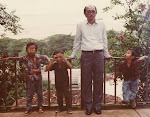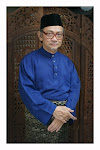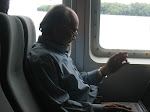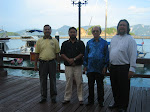|
| |||||||||||||||||||||||||||||
|
| ||||||||||||||||||||||||||||||
Tuesday, December 23, 2008
DUKA
Subscribe to:
Post Comments (Atom)
Selamat Hari Keputeraan yg ke-76 tahun (3 JULAI 1934 )
Mokhtar Petah
2010
Najib Tun Razak
Perdana Menteri Malaysia
Mokhtar Petah
Noh Omar
Jihadnya
Bela Rakyat Jelata
Mokhtar Petah
Biografi
Tan Sri Ishak Tadin
Mokhtar Petah
Rasuah
Musnahkan Negara
Noor Iskandar
Anwar Ibrahim
Dalam
Sejarah Alam Melayu











.jpg)



.jpg)





.jpg)
.jpg)
.jpg)
.jpg)
.jpg)
.jpg)
.jpg)










































|
| |||||||||||||||||||||||||||||
|
| ||||||||||||||||||||||||||||||
NAMA | :Mohd. Mokhtar bin Mohd. Petah |
NAMA PENA | :Mokhtar Petah, Akhdiat, M. Fathy, Noor Iskandar. Saiful M. |
LAHIR | :03 Julai 1934 di Kampung Ngor, Sauk, Kuala Kangsar, Perak. |
BIODATA
MOKHTAR PETAH dalam dunia kesusasteraan dan kewartawanan Melayu telah mula dikenal sejak tahun 1950-an lagi. Beliau menceburkan diri dalam dunia penulisan sewaktu menuntut di Sekolah Agama Teluk Intan, Perak. Tulisan beliau pada peringkat awal banyak tersiar dalam majalah bertulisan Jawi seperti Hiboran, Juita, Mutiara, dan Mustika yang diterbitkan di Singapura dan kemudian dalam majalah Belia, Gelanggang Filem, dan Majalah Guru, yang bertulisan Rumi. Selepas itu tulisan beliau banyak mendapat tempat dalam akhbar penting di Malaysia seperti Utusan Melayu, Utusan Zaman, Berita Harian, Berita Minggu, dan Warta Negara.
Mokhtar Petah ialah anak sulung daripada dua orang adik-beradik. Ayahnya berasal dari Indonesia, sementara ibunya dari Patani, Siam. Ayahnya menetap di Perak dan hidup sebagai petani. Semasa kecil beliau belajar di beberapa buah sekolah agama. Antaranya Sekolah Agama Teluk Intan, Perak dan Sekolah Daeratul Maarif Al-Wataniah, Kepala Batas, Seberang Prai. Beliau pernah mendapat peluang melanjutkan pelajaran ke Universiti Islam Indonesia tetapi beliau tidak dapat memenuhi cita-citanya itu kerana kemiskinan keluarganya. Walau bagaimanapun, beliau berpeluang mengikuti Kursus Sains Politik untuk penulis dan wartawan politik Asia yang dianjurkan oleh Presiden Soekarno, Indonesia.
Selepas tamat persekolahan, Mokhtar Petah terus menjadikan bidang penulisan sebagai kegiatannya yang utama. Beliau pernah bekerja sebagai pemberita bagi akhbar Warta Negara dan Warta Mingguan yang beribu pejabat di Pulau Pinang. Apabila Utusan Melayu diterbitkan di Singapura beliau menjadi pemberita akhbar tersebut bagi kawasan negeri Perak. Pada akhir tahun 1950-an beliau meninggalkan bidang kewartawanan dan menjadi guru di sekolah agama rakyat bersama Ustaz Abu Bakar Hamzah, seorang ahli politik yang terkenal pada masa itu, di Kampung Berala, Kuala Kangsar, Perak. Kerana pengetahuan agamanya, beliau pernah dilantik menjadi Kadi Kerajaan negeri Perak, tetapi kerana minatnya yang mendalam dalam dunia kewartawanan, beliau berhenti dari jawatan tersebut setelah sehari menjawat jawatan itu. Beliau menumpukan minatnya semula dalam bidang kewartawanan dengan menjadi wartawan kepada akhbar Harian Patriot, Medan, Indonesia.
Apabila Berita Harian diterbitkan di Singapura di bawah pimpinan A. Samad Ismail, Mokhtar Petah menjadi wartawannya di Perak, di samping terus menulis untuk akhbar dan beberapa buah majalah lain di Malaysia dengan menggunakan beberapa nama samaran seperti M. Fathy, Noor Iskandar dan lain-lain. Sebagai seorang wartawan yang ingin melihat kemajuan dalam bidang kewartawanan di kalangan masyarakat, khususnya di kalangan para penulis muda, maka dalam tahun 50an dan 60an, Mokhtar Petah telah menganjurkan beberapa Kursus Kewartawanan di Kuala Kangsar dan di Ipoh, Perak. Ada di antara para pesertanya telah berjaya menjadi wartawan dan editor yang terkenal hasil daripada kursus yang dianjurkannya itu.
Selain daripada itu, semasa menjadi wartawan di Perak, Mokhtar Petah mempunyai hubungan yang rapat dengan Sultan Idris Shah dan bergaul rapat dengan anggota orkestra yang dipimpin oleh baginda. Sebab itu, apabila Allahyarham P. Ramlee datang ke Perak dan berbincang mengenai kegiatan muzik dengan anggota orkestra tersebut, Mokhtar Petah berpeluang berkenalan dengan P. Ramlee. Perkenalan tersebut menjadi bertambah erat dan dengan itu beliau sering mendapat peluang berbincang dengan P. Ramlee terutamanya mengenai skrip filem dan tentang seni kata lagu.
Mokhtar Petah mula berminat dalam dunia penulisan setelah banyak membaca karya-karya Arab dan Indonesia. Antaranya yang ditulis oleh Syed Qutub, Mustafa Al-Ghalayeen, Hassan Al-Bana, Hamka, Sutan Takdir Ali Shahbana, Chairil Anwar, Tan Melaka dan beberapa orang ulama termasuk Haji Agus Salim. Mokhtar Petah pernah mendampingi Hamka sewaktu beliau sering datang melawat Malaysia dalam tahun 1950an. Mokhtar Petah juga pernah bersua muka dan menemuramah Presiden Soekarno semasa Presiden tersebut memegang kuasa di Indonesia.
Di samping menjadi seorang wartawan, Mokhtar Petah menggunakan masa lapangnya menulis novel, cerpen dan rencana umum. Namun sebagai seorang penulis, Mokhtar Petah mempunyai pendirian tertentu tentang peraduan menulis novel dan cerpen. Beliau tidak pernah menyertai sebarang peraduan. Beliau berpendapat: Penulis yang muncul daripada kemasyhuran kerana menang peraduan tidak semestinya akan kukuh sebagai seorang penulis yang idealis. Beliau mendapat bimbingan dan dorongan menulis daripada tokoh seperti A. Samad Ismail, Dahari Ali, Mazlan Nordin, Abdullah Zawawi, Aziz Ishak, Dr. Burhanuddin, dan beberapa orang sahabatnya dari Indonesia.
Pada tahun 1973 telah menerbit dan bertanggungjawab sebagai editor akhbar rasmi Kerajaan Negeri Perak, iaitu Berita Perak. Pada masa itu Negeri Perak diketuai oleh Menteri Besar Dato’ Sri Haji Kamaruddin Mat Isa.
Sebagai seorang penulis yang juga menaruh minat terhadap isu-isu kemasyarakatan dan politik, Mokhtar Petah berpendapat: bahawa politik yang berlandaskan AI-Quran dan al Hadis sahaja yang boleh memberi faedah dan manfaat kepada manusia, terutama orang-orang Melayu yang beragama Islam.
Dalam tahun 1978 Mokhtar Petah berhenti daripada menjadi wartawan Berita Harian lalu menceburkan diri dalam bidang perniagaan. Kemudian pada awal tahun 1984 beliau berhijrah ke Kuala Lumpur. Beliau pernah menulis untuk majalah Era, Berita Kesatuan Pekerja-pekerja Bandaraya dan menjadi wartawan dan editor perunding bagi beberapa penerbitan di ibu kota. Kemudian menjadi Editor Perunding untuk Mingguan Famili dan majalah bulanan HAWA sebelum menerbitkan Majalah IMAN pada 1989. Di samping menjadi Ketua Editor surat khabar mingguan ERA BARU. Kini menjadi Ketua Editor Mata Publication.
KARYA:
Novel | Nama Pena | Tempat | Penerbit | Tahun | m/s |
Dinoda | M. Fathy | Singapura | Geliga Limited | 1957 | 40 |
Janda Lawan Dara | M. Fathy | Singapura | Geliga Limited | 1957 | 40 |
Terpaut | Ipoh | Pustaka Andalas | 91 | ||
Kelopak yang Kuncup | Kuala Lumpur | Pustaka Melayu Baru | 1965 | 90 | |
Tandus | Pulau Pinang | Saudara Sinaran Berhad | 1967 | 149 | |
Mereka Hanya Mangsa | Kuala Lumpur | Penerbit Titiwangsa | 1977 | 170 | |
Nekad Anak Watan | Kuala Lumpur | Penerbit Titiwangsa | 1977 | 307 | |
Bunga Mekar yang Ternoda | Subang Jaya | Tra-Tra Publishing & Trading Co. | 1980 | 128 | |
Cinta Tinggal di Rantau | Subang Jaya | Tra-Tra Publishing & Trading Co. | 1980 | 181 | |
Detik-detik Perpisahan | Subang Jaya | Penerbitan Tra-Tra Sdn. Bhd. | 1981 | 253 | |
Hadiah Dari Batin | Subang Jaya | Penerbitan Tra-Tra | 1981 | ||
Cinta di Langit Zaman | Subang Jaya | Tra-Tra Publishing & Trading Co. | 1983 | 228 | |
Akibat Dosa | Kuala Lumpur | Pustaka Minda | 1992 | ||
Kasih Ibuku | Kuala Lumpur | Mata Publication | 2005 | ||
Cerpen | Nama Pena | Tempat | Penerbit | Tahun | m/s |
Serpihan Hidup(antologi bersama Nora dan Rokiah Abu Bakar) | Kuala Lumpur | Penerbitan Pustaka Antara | 1964 | 140 | |
Agama | Nama Pena | Tempat | Penerbit | Tahun | m/s |
Salman Rushdie Pengarang ‘The Satanic Verses’ (Surah-surah Syaitan) Dihukum Bunuh oleh Mahkamah Islam | Kuala Lumpur | Wadah Pelita | 1989 | ||
Falsafah Ibadat Umrah dan Haji | Kuala Lumpur | Mata Publication | 1990 | ||
Akibat Dosa | 1993 | ||||
Rahsia dari Al-Quran: Manusia, Haiwan dan Serangga | Kuala Lumpur | 1994 | |||
Rahsia dari Al-Quran: Sains dan Seksologi | Ampang | Selangor Citakhidmat | 1995 | ||
Soal Jawab Masalah Wanita | Ampang | Selangor Citakhidmat | 1997 | ||
Jerebu | Kuala Lumpur | Pustaka Antara | 1997 | ||
Umum | Genre | Tempat | Penerbit | Tahun | m/s |
Zulkifli Muhammad Dalam Kenangan | Biografi | Kota Bharu | Pustaka Aman Press | 1965 | |
Bangsa Melayu Menggugat Dunia | Kota Bharu | Pustaka Aman Press | 1966 | ||
Siapa Bakal Menteri Besar Perak? | Ipoh | Yayasan Massa | 1977 | ||
Dr Mahathir dan Masa Depan Negara | Subang Jaya | Penerbitan Tra-Tra | 1982 | ||
Zulkifli Muhammad: Pelopor Angkatan Islam di Malaysia | Biografi | Subang Jaya | Tra-Tra Publishing & Trading Co. | 1983 | 108 |
Perak dibawah Pimpinan Menteri Besar Datuk Sri Ramli Ngah Talib | Kuala Lumpur | Karya Bestari | 1987 | ||
MB Selangor Tergugat kerana Kahwin dengan Puteri Istana | Kuala Lumpur | Mata Publication | 1989 | ||
Krisis antara Raja-Raja Melayu dengan UMNO | Kuala Lumpur | Mata Publication | 1991 | ||
Kerajaan Mansuh Kekebalan Raja Melayu | Kuala Lumpur | Art Media | 1993 | ||
Reformasi Fikiran dan Pembangunan | Kuala Lumpur | Mata Publication | 1994 | ||
Semarak: Menteri Besar Negeri Sembilan | Kuala Lumpur | Mata Publication | 1994 | ||
Kejayaan Bersama | Kuala Lumpur | Mata Publication | 1995 | ||
Datuk Abdullah Badawi: Pejuang Kemanusiaan Sejagat | Biografi | Kuala Lumpur | Pustaka Antara | 1997 | |
Sheikh Abdullah Fahim: Penentu Tarikh Kemerdekaan Negara 31 Ogos ’57 | Biografi | Kuala Lumpur | Pustaka Antara | 1997 | |
Abdul Kadir: Peguam Rakyat | Biografi | Kuala Lumpur | Tabung Kebajikan Ronald McDonald untuk Kanak-Kanak Malaysia | 1998 | |
Meniti Derita ke Puncak | Biografi | Kuala Lumpur | Darulfikir | 1998 | |
Perjuangan yang belum Selesai: Dr. Mahathir Menangis Demi Bangsanya | Kuala Lumpur | Simfoni Gemilang | 1999 | ||
Terima Kasih Dr. Mahathir | Kuala Lumpur | 1999 | |||
Amanah Cekap dan Adil: Falsafah Kepimpinan Dr. Abdullah Badawi | Kuala Lumpur | Yayasan Amal Maaruf Malaysia | 2004 | ||
Abdullah Badawi Penjana Modal Insan | Raspintar Sdn.Bhd | 2006 | |||
Akan Terbit | Genre | Tempat | Penerbit | Tahun | m/s |
Patah Sayap Bertongkatkan Paruh | Memoir/ Biografi Penulis | Kuala Lumpur | |||
Cinta dan Jihad | Novel | ||||
Bunga Padma Di Lembah Nil | Novel | ||||
Kelip-kelip di Kota London | Novel | ||||
Madu dan Air Mata Kering Di pipi | Novel | ||||
Basmi Rasuah | |||||
Perjuangan Suci Lima Perdana Menteri | Politik | ||||
Kedaulatan Raja-Raja Melayu |
No comments:
Post a Comment